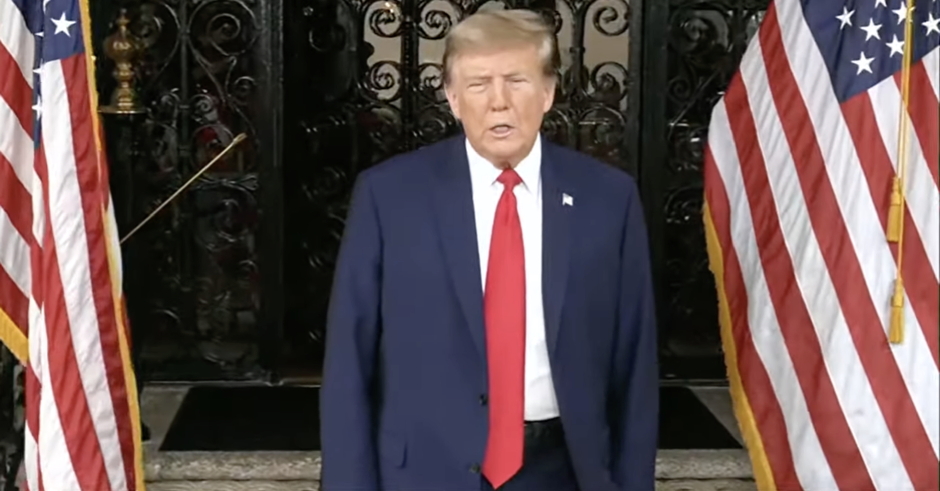[ad_1]
Justices on the U.S. Supreme Court appear prepared to hand Donald Trump a win, allowing him to not only stay on the Colorado primary ballot, but to make a landmark ruling that the 14th Amendment to the U.S. Constitution does not allow any state to remove a candidate from an election even if they have engaged in insurrection, according to several legal experts.
Legal experts also suggest the justices were not open to Colorado’s argument, and are likely to decide for the ex-president who is also facing 91 criminal felony charges, including some for his efforts in allegedly attempting to overturn the 2020 election he lost.
“This argument did not go well for the Trump challengers,” said former Acting U.S. Solicitor General Neal Katyal live on MSNBC.
“The SCOTUS oral argument- Colorado will lose, with the only issue being whether a single Justice will dissent. Tough and smart questions by the Justices including the 3 in the liberal wing,” writes Professor of law Andrew Weissmann, an MSNBC legal analyst who spent decades at DOJ.
“My bet,” says professor of law Steve Vladeck, “Between 7-2 and 9-0 for the very specific proposition that states can’t unilaterally disqualify candidates running for President on the ground that they engaged in insurrection. That’s just a prediction based on the oral argument—not what I think the Court *ought* to do.”
READ MORE: ‘Open Rebellion’: Mike Johnson, Mitch McConnell and Ronna McDaniel Under MAGA Fire
Professor of law Rick Hasan, a noted election law expert, says it “would not be surprising to see a quick 9-0 or 8-1 ruling reversing Colorado and keeping Trump on the ballot, with Roberts writing on the federal interest, and perhaps some concurrences (Kavanaugh on Griffin, Alito and Gorsuch on ‘holdin’ office). Sotomayor is the question mark.”
“In my view this argument is as good as over,” wrote Mark Joseph Stern, before oral arguments concluded. “A majority will hold that individual states can’t enforce Sec. 3 against the president, at least without congressional approval.”
As some observed, it took the Justices an hour to even address the issue of insurrection, which is central to the case. Others expired grave concern that Justice Clarence Thomas, who they say clearly has a deep conflict of interest given his spouse’s actions, chose to not recuse himself.
“SCOTUS justices across the aisle — including Kagan, Thomas, and Barrett — have questioned states’ ability to disqualify federal candidates under the 14th Amendment, Section 3,” notes veteran legal reporter Adam Klasfeld. He also says, “Justice Ketanji Brown Jackson expresses skepticism about the definition of ‘officer’ in the disqualification clause: ‘Why didn’t they put president in the very enumerated list of Section Three?’”
“That ‘troubles’ her, she says.”
Justice Brett Kavanaugh suggested that criminal prosecution of insurrection was required to enforce Section 3 of the 14th Amendment. He also asked about “the right of the people” to vote for the candidate of their choice, and appeared concerned about “disenfranchisement” of voters.
READ MORE: Top Catholic Priest Has Some Advice for ‘Moses’ Mike Johnson
The Associated Press observes it is “bad for the plaintiffs trying to disqualify Trump” that January 6 “isn’t coming up in this argument.”
The AP adds that “the questioning has almost all been about technical, procedural issues, which are many of the reasons that Trump and others say the high court just shouldn’t go there. The justices are plainly worried that they’ll open a Pandora’s Box if they uphold the Colorado ruling, allowing other states to disqualify people they dislike through whatever fact-finding procedures they see fit to use.”
The attorney arguing for Colorado, Jason Murray, “keeps trying to bring the discussion back to Trump’s conduct, but not even the Democratic-appointed justices seem to be biting.”
Politico is even more certain that the Supreme Court will side with Trump and deem him not ineligible to hold elected office.
“The Supreme Court appeared to sharply veer against the Colorado voters challenging former President Donald Trump’s eligibility to run for office,” Politico’s Kyle Cheney reports. “Justices on both the left and right raised pointed questions to Jason Murray…about the ‘extraordinary’ ramifications of letting individual states decide whether a candidate is an insurrectionist.”
He adds that the “justices seem hostile to [the] disqualification effort.”
“Chief Justice John Roberts said that would essentially empower individual states to exert unilateral control over federal elections, a position ‘at war’ with the notion that the Constitution’s 14th Amendment was intended to empower the federal government to constrain wayward states.”
Justice Elena Kagan also appeared opposed, asking: “Why should a single state have the ability to make this determination, not only for their own citizens, but for the rest of the nation?”
READ MORE: Doubts Swirl Around Speaker Johnson’s Abilities After ‘Embarrassing’ Losses: Report
[ad_2]




